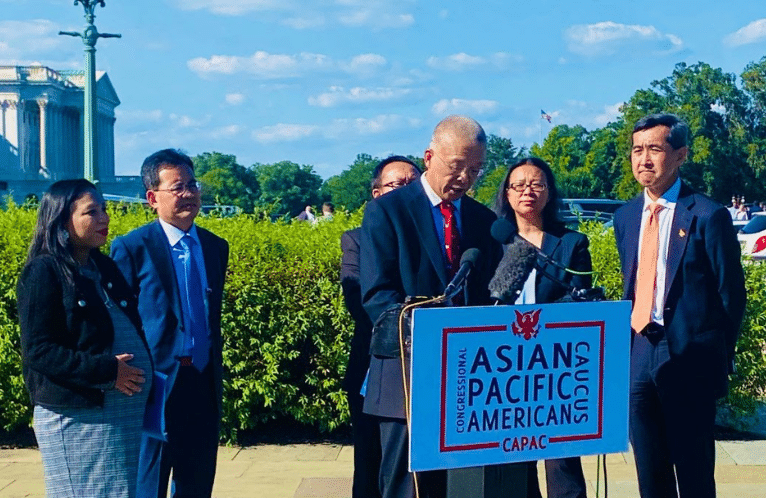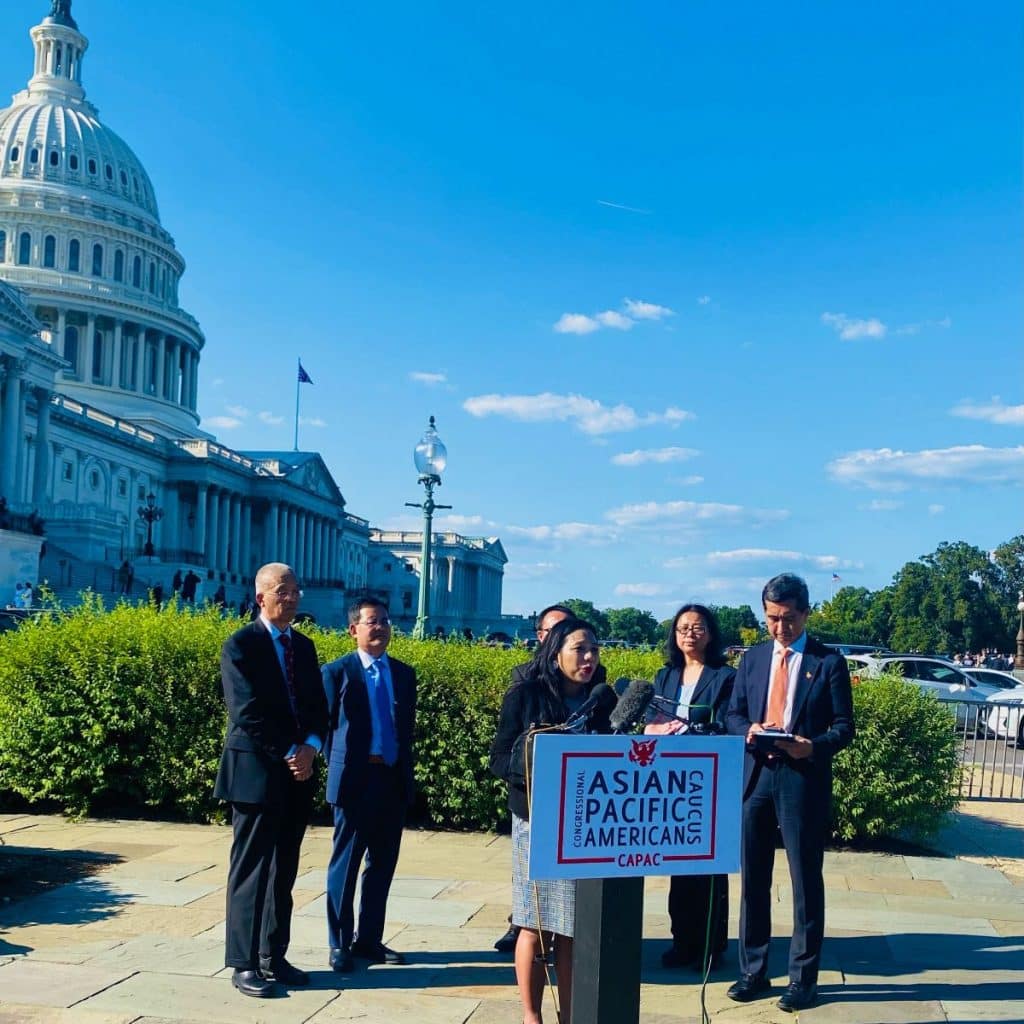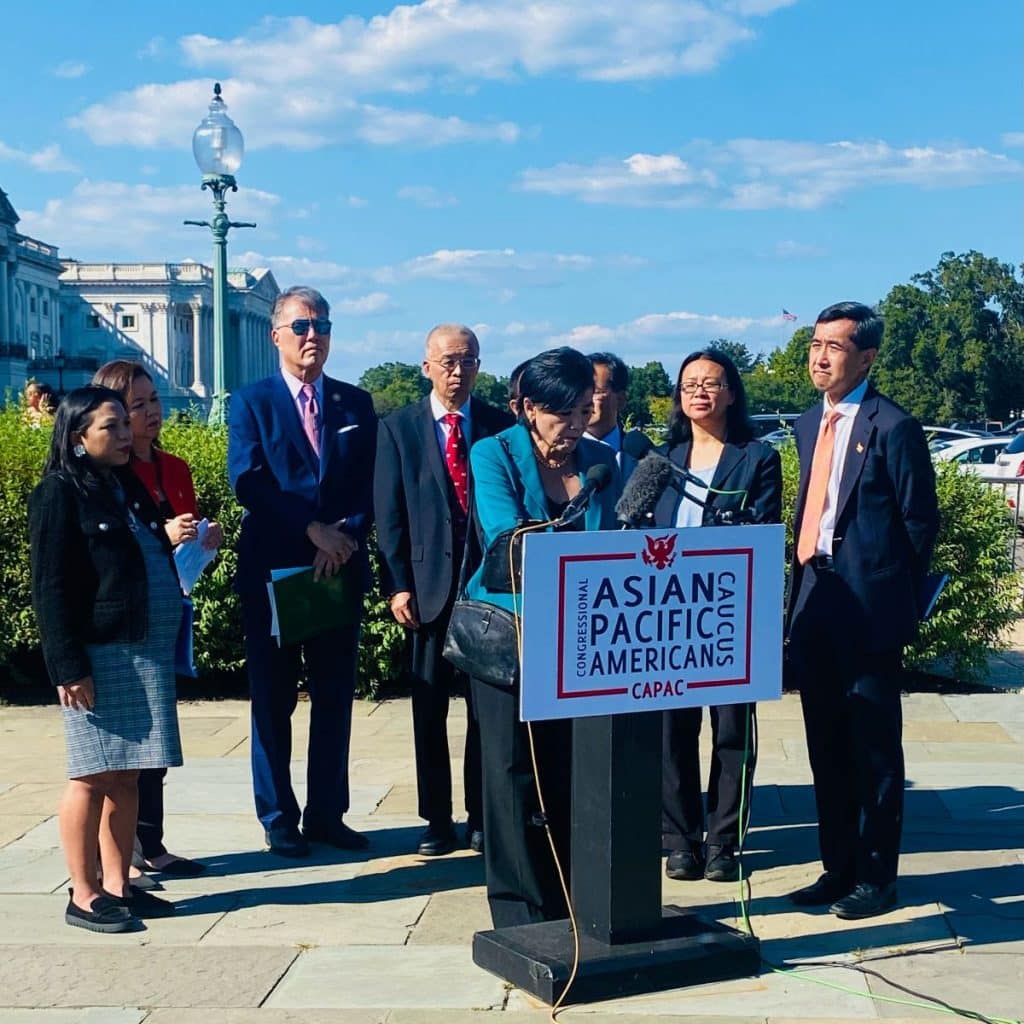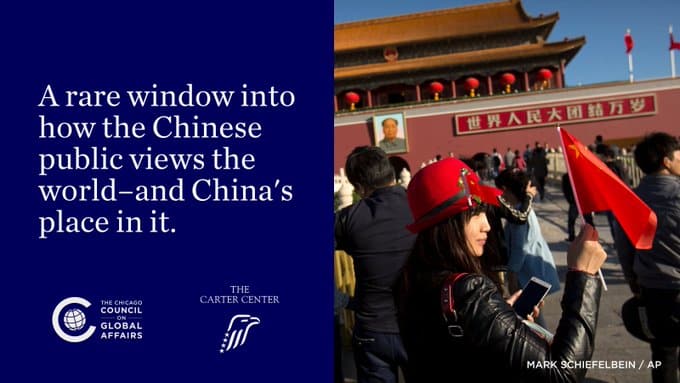Asian American Civil Rights Organizations Alarmed by “China Week”
- Analysis
 Juan Zhang
Juan Zhang- 09/13/2024
- 0

Several leading civil rights organizations for Asian Americans issued a joint press statement on Wednesday condemning a series of votes on China-related legislation in the U.S. House.
“Most Americans can agree that national security and economic security are important issues, and there are indeed responsible ways for our elected leaders to tackle them. However, we believe ‘China Week’ is being executed in bad faith and goes against our shared American values of freedom and equality for all,” said a joint statement by Stop AAPI Hate, Asian Americans Advancing Justice | AAJC, and Asian American Scholar Forum, three leading Asian American civil rights organizations in the nation.

House Republicans Push through a Slate of
China Bills
More than two dozen bills are receiving votes in the House this week as part of what’s been called “China Week,” targeting everything from trade and economic espionage to biosecurity and farmland purchasing.
“We wanted to combine them all into one week so that you had a real sharp focus on the fact that we need to be aggressive in confronting the threat that China poses,” explained House Majority Leader Steve Scalise about “China Week.”
In a heated presidential election year, taking a tough stance on China and playing the “China-bashing card” has become a bipartisan consensus. Attacks on China from both Democratic presidential nominee Kamala Harris and Republican presidential nominee Donald Trump in the latest debate were yet another reminder of that consensus.
Furthermore, both parties seek to compete by using China to attack opponents. According to a report from the Washington Post, Republican leaders framed China-related bills as proof of the Biden-Harris administration’s “failed foreign policy of appeasement.” The Republican-controlled House aimed to criticize the Democrats for being too soft on China by pushing forward this wave of China-related bills.
It is reported that House Republicans have started to work on this slate of China-related legislation at least in the summer. Republican House Speaker Mike Johnson pointed out that he was working on “a significant package of China-related legislation signed into law by the end of this year” in July at Hudson Institute, a non-partisan think tank in Washington DC.
“We’ll build our sanctions package, punish the Chinese military firms that provide material support to Russia and Iran, and we’ll consider options to restrict outbound investments,” said Johnson.
With only three weeks of work on Capitol Hill before the November 5 election, analysts cast doubts on the future of those China bills. A Democratic foreign policy aide said to the Washington Post, “There is little chance any of these bills will become law” because of the limited time and the slower pace of the Senate.
Nevertheless, there is a significant political incentive for the Republicans to push the China-related bills despite very little chance of success. They want to return to their districts right before the election with a strong and unwavering message: I am tough on China.

Two Bills are in the Center
Two bills stood out among the two dozen proposed bills, raising particular alarm among Chinese Americans. One bill is H.R. 1398, Protect America’s Innovation and Economic Security from CCP Act of 2024, aiming to reinstate a Trump-era policy being accused of profiling and targeting Chinese American scientists by civil rights groups, and the other bill is H.R. 9465, Protecting American Agriculture from Foreign Adversaries Act of 2024, a bill to require the Committee on Foreign Investment in the United States to review agricultural land purchases solely by immigrants from China, North Korea, Russia, or Iran.
By Thursday night, September 12, the House passed 25 pieces of legislation “to protect Americans against the military, economic, ideological, and technological threats posed by the Chinese Communist Party,” according to a press release by the Select Committee on the CCP of the House. This includes the bills HR 1398 and HR 9465 that were passed on Wednesday.
Stop AAPI Hate, Asian Americans Advancing Justice | AAJC, and Asian American Scholar Forum convened in Washington D.C. on Tuesday to condemn the potential negative effects on Asian Americans, particularly on Chinese Americans, posed by the work of “China Week.”
“Today, we are once again witnessing an alarming rise in anti-Asian political rhetoric and legislation that is threatening the safety and rights of millions of Asians and Asian Americans in the U.S.,” said their joint press statement by the groups.
The statement continued, “As the policies of ‘China Week’ and the harmful rhetoric surrounding it have demonstrated, it is clearly part of the anti-Asian scapegoating playbook. ‘China Week’ is rooted in xenophobia and unless we hold our leaders accountable for it, our nation is bound to repeat the same horrific mistakes of the past.”
The statement listed historical “devastating consequences” toward Asian Americans because of xenophobia. The Immigration Act of 1924 that banned all immigrants from Asia, the incarceration of Japanese Americans during World War II, and the recent backlash against Asian Americans during the COVID-19 pandemic were among the listed.
Prior to Tuesday’s press statement, 60 civil rights and Asian American academic organizations, wrote an open letter urging Congress to oppose any legislation seeking to reinstate the China Initiative. The letter wrote: “The ‘China Initiative’ further created a chilling effect for Asian American scholars and scientists for fear of prosecution, deterring them from engaging in normal activities such as applying for federal grants, conducting research, or even traveling with family.”
In a press release on Wednesday by the chair of Congress Asian Pacific American Caucus, Representative Judy Chu criticized the House Republicans who could have collaborated across party lines this week to support our veterans, safeguard our homeland, and work on funding the government. “Instead, they launched a partisan ‘China week’ that does nothing to improve our competitive advantages to the Chinese Community Party or seriously address national security interests,” she wrote.
“I vehemently condemn the passage of these bills today and commit to stopping any further consideration of it in Congress. We should always aim to pass legislation based on evidence it will lift us up—not tear us down based on our race, ethnicity, or national origin,” wrote Representative Chu.
The views expressed in this article represent those of the author(s) and not those of The Carter Center.
Author
-

Juan Zhang is a senior writer for the U.S.-China Perception Monitor and managing editor for 中美印象 (The Monitor’s Chinese language publication).







